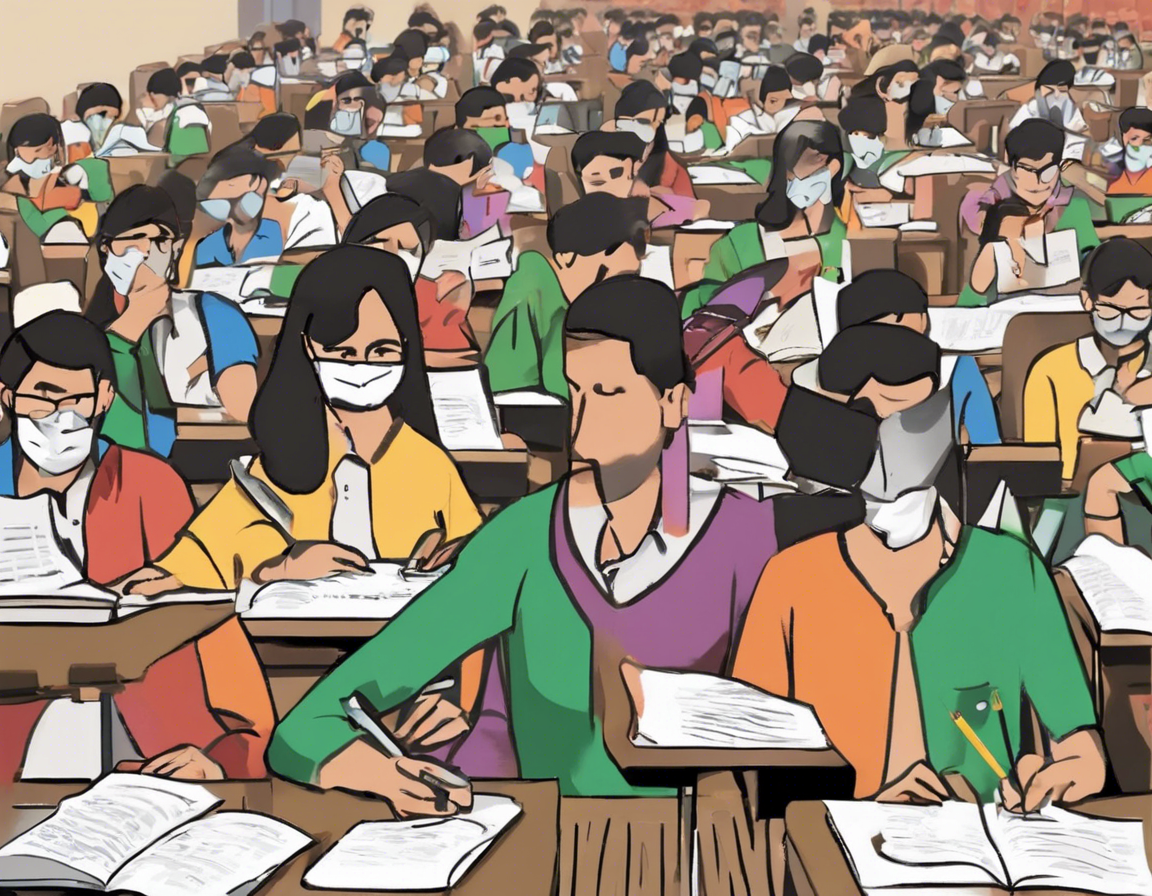With the recent updates in the JEE Main 2024 syllabus, students and parents are eager to know what has been removed from the original syllabus. To ensure better preparation, it is crucial to be aware of these changes and focus on the key topics that will be covered in the upcoming exam. In this article, we will delve into the deleted syllabus for JEE Main 2024, providing in-depth insights to help you tailor your study plan effectively.
Changes in JEE Main 2024 Syllabus
The National Testing Agency (NTA), which conducts the JEE Main exam, periodically reviews and updates the syllabus to align it with the current educational standards and requirements. The changes made in the syllabus aim to streamline the examination process and ensure that students are tested on relevant concepts and topics. Here are some of the key topics that have been deleted from the JEE Main 2024 syllabus:
Mathematics
- Introduction to Three Dimensional Geometry: The section on three-dimensional geometry, which includes topics such as direction cosines and ratios, equations of lines and planes in space, etc., has been removed.
- Mathematics of Logarithms: Detailed concepts related to logarithms, such as properties of logarithms, logarithmic functions, and their graphs, have been excluded from the syllabus.
- Statistics and Probability: Certain topics from statistics and probability, including regression analysis, correlation coefficient, and joint probability distribution, are no longer part of the syllabus.
Physics
- Electromagnetic Waves: The section on electromagnetic waves, covering topics like their characteristics, properties, and applications, has been eliminated.
- Optics and Waves: Some topics related to optics, wave nature of light, interference, diffraction, and polarization of light, have been removed from the syllabus.
- Modern Physics: Certain topics from modern physics, including nuclear fusion and fission, radioactivity, and their applications, have been excluded.
Chemistry
- Solid State: Detailed concepts related to solid-state chemistry, including types of solids, crystal lattices, defects, and semiconductor devices, have been deleted from the syllabus.
- Polymers and Biomolecules: Topics related to polymers, biopolymers, and their properties, as well as the structure and functions of biomolecules, have been removed.
- Chemical Kinetics: Certain aspects of chemical kinetics, such as the rate of reactions, order and molecularity, and factors affecting reaction rates, have been excluded.
Importance of Understanding Deleted Syllabus
While it is essential to focus on the topics that are part of the revised JEE Main 2024 syllabus, understanding the deleted topics can also play a crucial role in your preparation strategy. Here are some reasons why you should pay attention to the topics that have been removed:
- Time Management: By knowing what topics have been deleted, you can allocate your time and resources more efficiently towards studying the relevant concepts that will be tested in the exam.
- Depth of Understanding: Understanding the deleted topics can provide you with a more comprehensive knowledge base, allowing you to grasp related concepts more profoundly.
- Avoiding Confusion: Being aware of removed topics can prevent confusion during exam preparation, ensuring that you focus on the areas that are critical for success.
FAQs (Frequently Asked Questions)
1. Why are topics removed from the JEE Main syllabus?
- The topics are removed to streamline the syllabus, focus on essential concepts, and align it with current educational standards.
2. Should I still study the deleted topics?
- While studying the deleted topics is not necessary, having a basic understanding of them can be beneficial for a deeper comprehension of related concepts.
3. How can I access the updated JEE Main 2024 syllabus?
- The updated syllabus is available on the official website of the National Testing Agency (NTA) for JEE Main.
4. Will the weightage of the remaining topics change due to deleted topics?
- The weightage of topics in the exam may be adjusted to reflect the changes in the syllabus, so it is crucial to focus on the revised syllabus.
5. Are the deleted topics still relevant for other exams or future studies?
- While the deleted topics may not be part of the JEE Main syllabus, they may still be relevant for other exams or serve as foundational knowledge for higher studies.
6. How can I adapt my study plan to accommodate the changes in the syllabus?
- It is advisable to revise your study plan, prioritize the topics in the revised syllabus, and seek guidance from teachers or mentors to adapt effectively.
7. Is it essential to refer to previous year question papers to understand the new syllabus?
- Referring to previous year question papers can provide insights into the exam pattern and help you identify the key topics to focus on in the updated syllabus.
8. Will the difficulty level of the exam change due to the revised syllabus?
- The difficulty level of the exam may be adjusted based on the revised syllabus, so it is crucial to be well-prepared and understand the updated topics thoroughly.
9. Can the deleted topics reappear in future JEE Main exams?
- While the deleted topics are not part of the current syllabus, they may be reintroduced in future exams, so maintaining a basic understanding of them can be beneficial.
10. How can I stay updated on any further changes in the JEE Main syllabus?
- Regularly checking the official NTA website, staying informed through educational platforms, and consulting with teachers or coaching institutes can help you stay updated on any changes in the syllabus.
In conclusion, understanding the deleted syllabus for JEE Main 2024 and focusing on the revised topics can significantly enhance your preparation and performance in the exam. By staying informed, adapting your study plan, and seeking guidance when needed, you can navigate through the changes effectively and maximize your potential for success.
